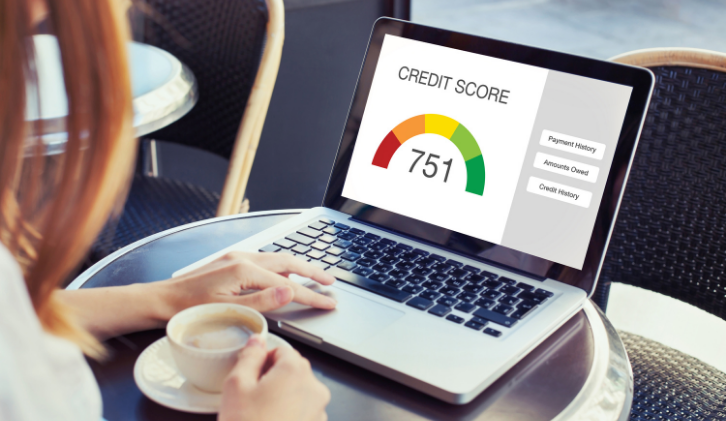Small Business Credit Builder – Part 1: Find & Understand Your Credit Score
Understanding the effect of a credit score will help business owners monitor and manage their financial rating effectively, which in turn increases the likelihood of being accepted for credit.
Return to blog posts
At Liberis we know the frustration that small business owners experience when applying for finance and getting a “Computer says no” from the bank. This is usually down to automated checks that look at information about you and your business, held by Credit Reference Agencies.
Understanding the effect of a credit score will help business owners monitor and manage their financial rating effectively, which in turn increases the likelihood of being accepted for credit.
We have put together a guide designed to help small business owners understand their credit rating and why it really matters when trying to access finance. The following pages include handy tips on how to improve your credit rating and what options there are for those businesses that need credit but have a poor rating; as well as details on some free ways to check your credit scores from our Credit Director, Alex Ivison.
What is a Credit Rating?
Essentially, a credit rating is a numerical indicator of how likely a business is to fulfil its financial commitments based upon previous dealings. It is a three digit number calculated from details about your financial history such as loans, business credit cards and any finance that has been taken out. This number is used as a tool by lenders to help them decide whether you are eligible for certain loans, a commercial mortgage or other financial services.
Lenders, or more often, a third party reference agency, usually calculate your score based on several elements of your credit file, such as the information you submit on your application, credit report, credit applications and any past information they may already have if you are a returning customer. The last 12 months of your credit history are the most important to potential lenders so, before you begin an application, check to see if you have a clean record of payments as if not, then you may be limited as to which lenders might accept you.
Why does a Credit Rating Matter?
This three-digit figure is actually one of the most important numbers for any business; playing an imperative part of your financial journey. Your credit rating can affect many key aspects of your company which we will explain in the following sections.
Approval or rejection for credit
Applying for credit in some form is just a part of business, whether you are looking to expand the business to boost production capacity and need the funds to do so, or if you need finance to develop a new product line, there are many situations where credit is required. With these applications come the credit checks.
Lenders of all types need to ensure that the money is going to be repaid: a high credit rating indicates that you/your business is a reliable borrower and are more likely to make the regular payments required. A low or non-existent score, however, suggests that you/your business is unreliable and should not be lent to for fear of repayments not being made, meaning that you can’t get the credit you need.
Interest Highs and Lows
This may sound like a myth but your credit rating can actually affect the amount of interest you pay on borrowed money. For example, using Experian’s credit rating number scale of 0 being a non-existent rating to 999 being an exceptional credit rating, if your credit rating is a healthy 850 you would be looking at a lower interest rate on the same amount of money borrowed than someone with a credit rating of 650 borrowing exactly the same amount.
And even if you don’t want finance now…
Even if you don’t plan on applying for any loans in the near future your credit rating should still be at the forefront of your mind. Your rating doesn’t just affect credit in the traditional sense. It can also influence how much you pay on certain insurances, meaning it is better to think seriously about your credit rating rather than dismissing it.
Whether you are looking to immediately borrow money in some form or not it is vital that your credit rating is thought about and steps are taken to improve it, this will ensure that when the time comes to apply for finance, lenders are impressed by your score and are more likely to approve your request.
How to Check Your Credit Rating
There are several credit reference agencies in the UK that, for a small fee, allow you to check your credit rating. It is your legal right under the Data Protection Act to obtain your file, which shows a copy of your credit report, you can dispute any incorrect information on the file and have it corrected within 28 days. These agencies, however, make it quicker and easier to obtain your ratings and there are ways around the fees. An important thing to remember about your credit rating is that there is no such thing as a definitive rating; these agencies all have different ways of rating credit history meaning that your rating will differ slightly between them.
Experian | www.experian.co.uk
Experian charge you a small monthly fee; luckily for first time users they offer a 30 day free trial. This free trial cannot be repeated. The 30 day free trial is rolling so if you do not wish to sign up to their premium service it is important that you remember to cancel before the 30 day trial expires. The premium service offers continuous management of your credit score and alerting you to any changes or potentially fraudulent activity. Experian’s CreditExpert scores credit ratings out of 999, the higher the number is the better your credit rating. This service is very commonly used by lenders.
Equifax | www.equifax.co.uk
Equifax’s credit report works in a similar way to Experian, you can sign up for a 30 day free trial of their service but once the 30 days are up you have to pay a monthly amount unless it is cancelled before the free trial is up. Equifax give you a score of up to 600, although this is a different number to Experian the same principle applies; the higher the score the healthier your credit rating. Equifax is another service frequently used by lenders, as well as Experian.
Clearscore | www.clearscore.com
Clearscore provides free access to Equifax ratings and reports although it is not part of the same company. Clearscore aims to give credit reports for free for life and not as part of a trial; however, they will offer users credit cards and loans and receive commission for the ones that you take up, but you are not forced into accepting any.
CallCredit | www.callcredit.co.uk
CallCredit offers a free service called Noddle, this gives you unlimited free access to your credit report which is updated monthly. If you are desperately trying to improve your score in time for an important application you may want to consider their Credit Compass service, offering daily updates instead. This pro-level service does come at a monthly cost but can be cancelled at any time. The only issue with Noddle is that it is not as comprehensive as the other agencies and is not yet widely used by lenders as a way to check credit reports.
What Affects Your Credit Rating?
Many factors can affect your credit rating and can affect whether you are accepted for credit or not, but what exactly are these factors? Here are some of the main things that could put a dent in your financial future.
Credit History
The thing that affects your credit rating the most is, of course, your credit history. If you have kept up repayments for any credit you may have then you are likely to have built up a good credit history. This shows future lenders that you are responsible and would be able to borrow money and can be trusted to make the necessary repayments. A great many people believe that if they haven’t had to apply for any credit they will have an excellent rating. This, however, is a common misconception. Lenders need to be able to see that the person applying for the credit has the ability to repay it, if there is no evidence of the person making payments then lenders won’t be able to determine whether or not you are reliable and therefore will not approve the application for credit.
Bankruptcies and Individual Voluntary Arrangements (IVA)
Just like your credit history, your past may affect your financial future. Records of any missed payments, unpaid debts and bankruptcies can stay on your file for up to six years. If you have had any debts or bankruptcies in the last six years future lenders will consider you high risk, this could also include accidentally missed payments. This will tell the lenders that you are not reliable enough to be accepted for credit.
Moving Location
Sometimes moving your business to a different location is out of your control, particularly when leasing a building or office space. However, lenders won’t care about these circumstances and will only see the many different addresses under your business’ name over the last three years which could suggest an unattractive lack of stability. So if you are on move, make sure to keep your accounts as steady and dependable as possible. This will involve ensuring all your bank accounts, credit and ER role are transferred to your new address; and anything left tied to your old location is checked or closed.
People You Are Linked to Financially
What this means is that if you have applied for credit with someone, a business partner for example, in the past and they don’t have a squeaky clean credit rating their credit history could go against your future applications as their financial situation could affect you being able to make repayments. Luckily this doesn’t apply to people you live with, you will have had to have entered into a joint loan, mortgage or bank account for their credit rating to affect yours.
Too Many Applications
It is natural to want to compare loan options, but your credit rating could be adversely affected if you were to shop around for loans too much too soon. Rather than applying for credit from a lot of places and then deciding which one to go for, you should use a comparison site that will do a soft credit search to work out which cards are suitable for your credit rating first. That way you will only get a hard footprint from the one product you apply for and not the many that you assessed eligibility for.
And what doesn’t affect your credit rating?
Just so you are clear on what doesn’t affect your credit rating, here is a short list of some things you don’t need to worry about:
- Council Tax
- Medical History
- Your job title
- Your education level
- Savings accounts
- Fines, such as speeding and parking
- Child Support Agency
Part Two of our guide to Small Business Credit Scores
The next part of our guide will give you the information you need in order to build and improve your score. Ways you can build up a credit history if you do not have one, this is often referred to as a “thin file”. Also we have expert advice on tips to improve your current score and if you have a poor credit score then we have recommendations on options for you and a longer term improvement plan.






















